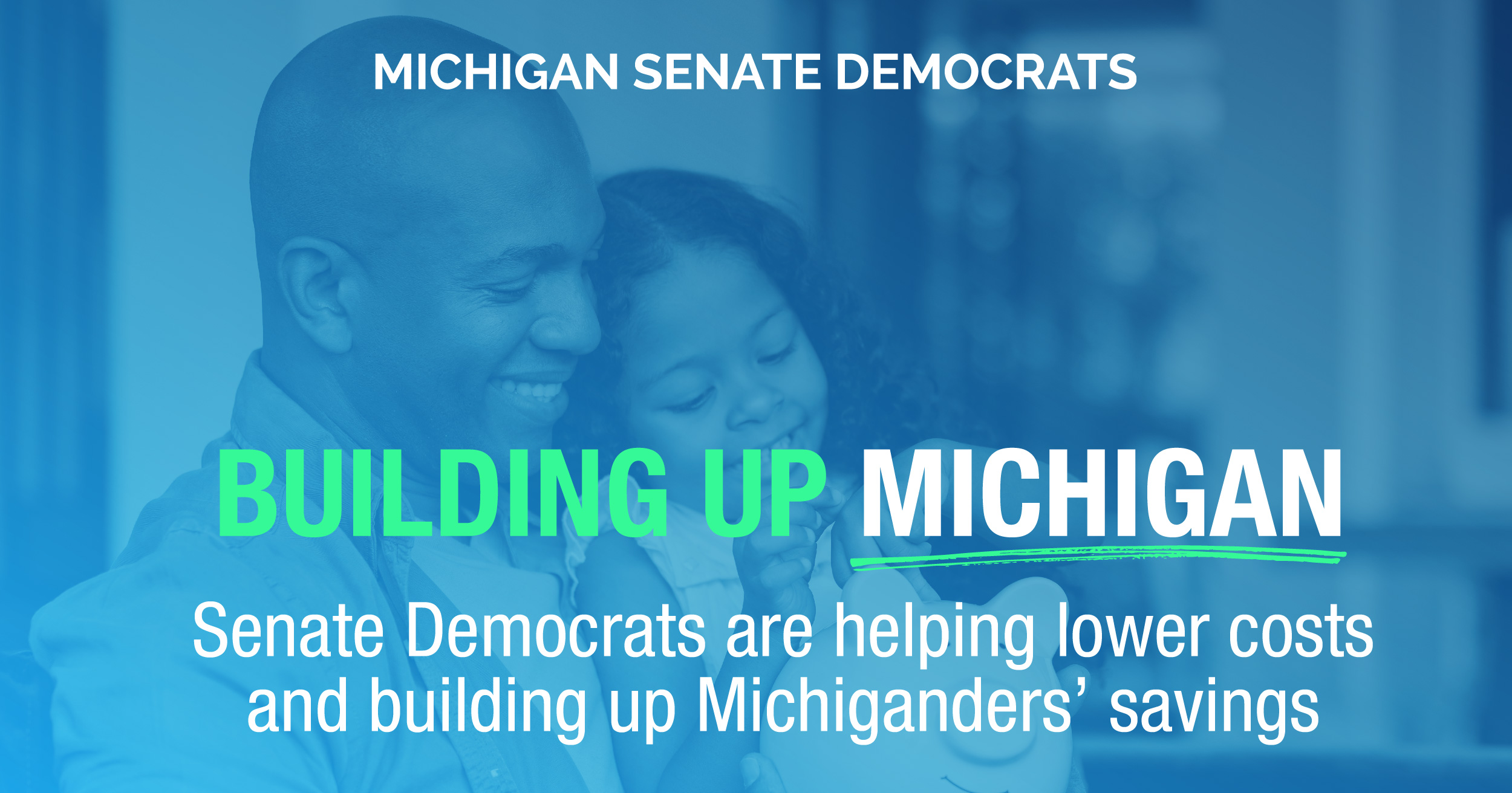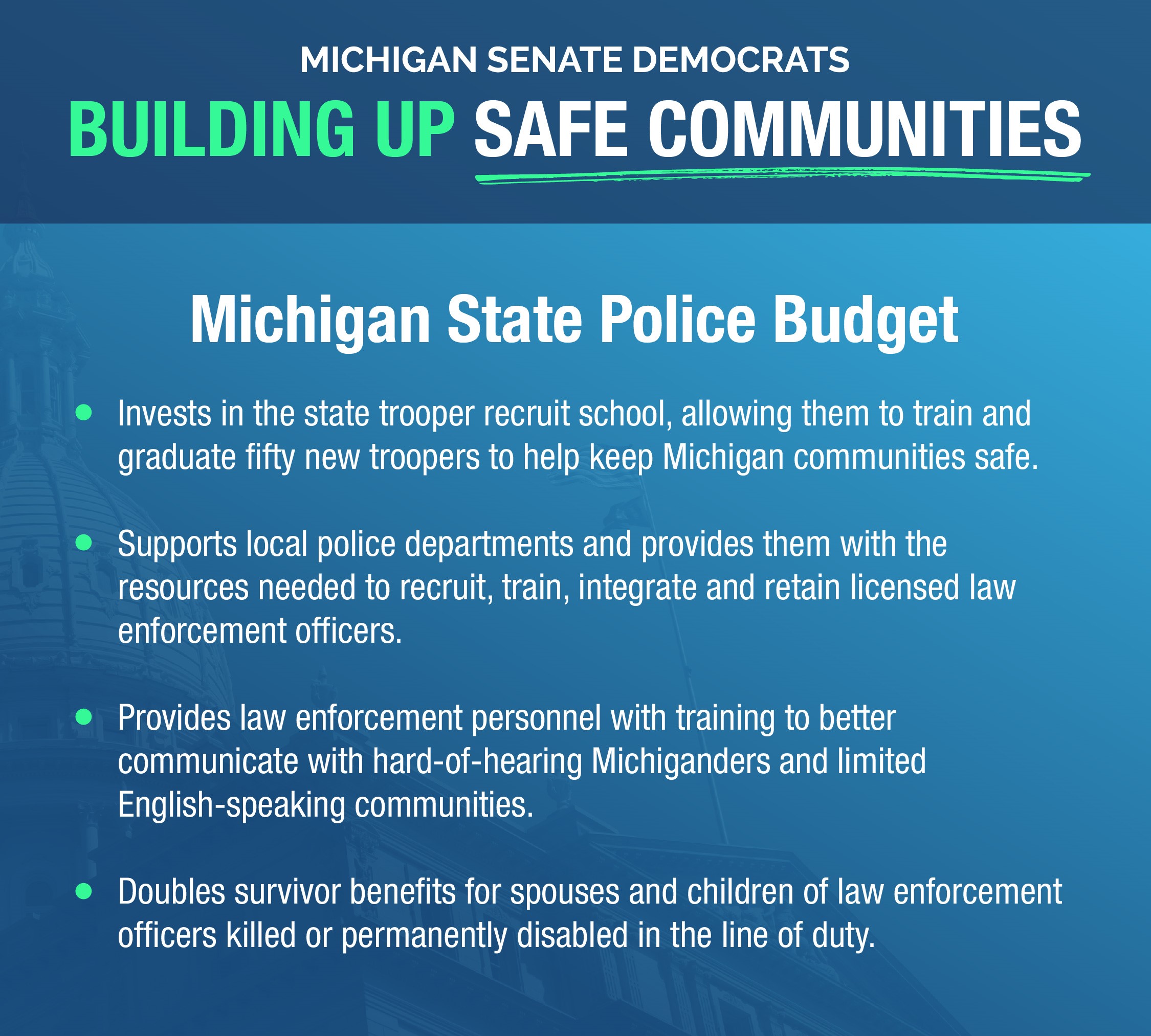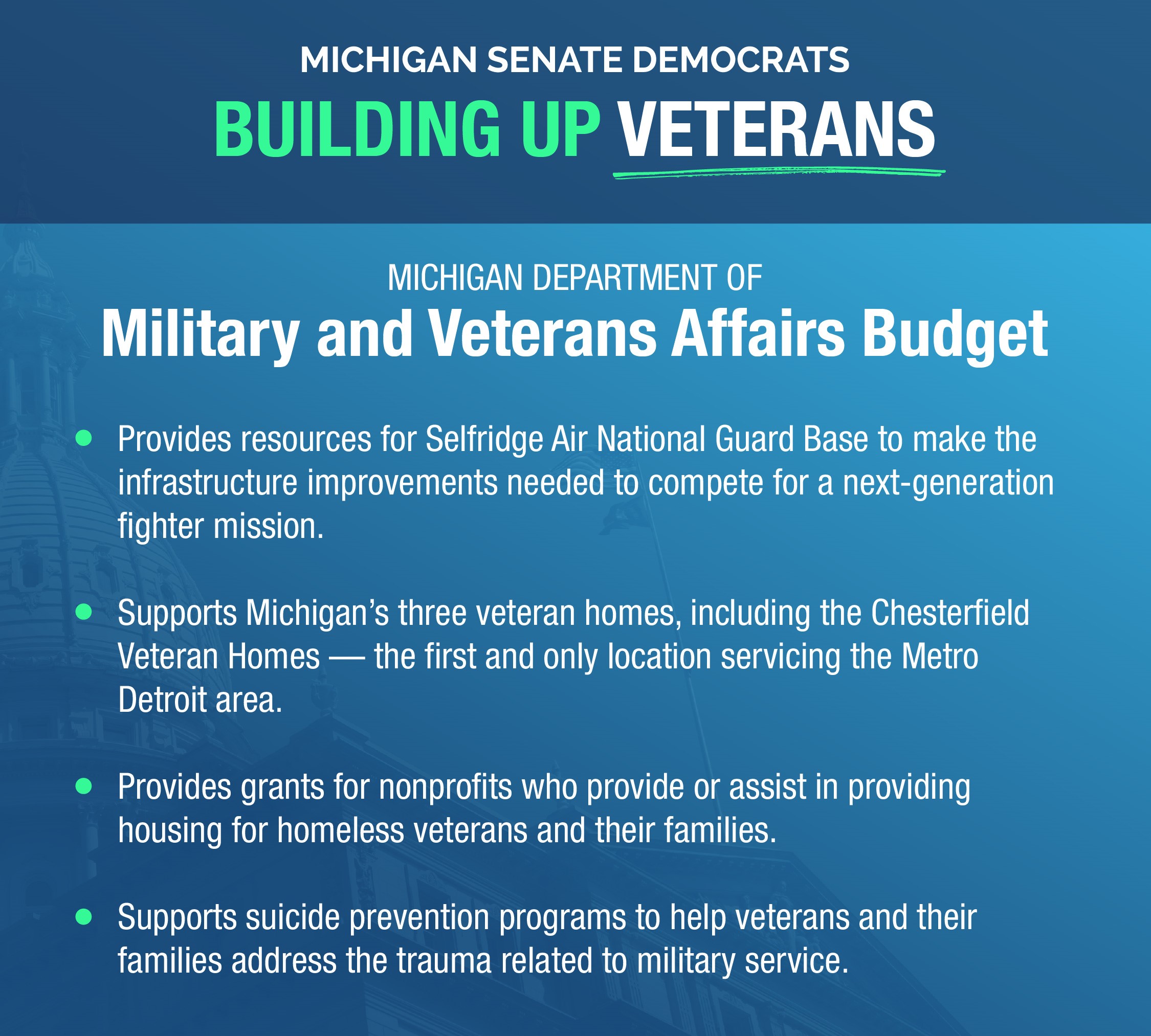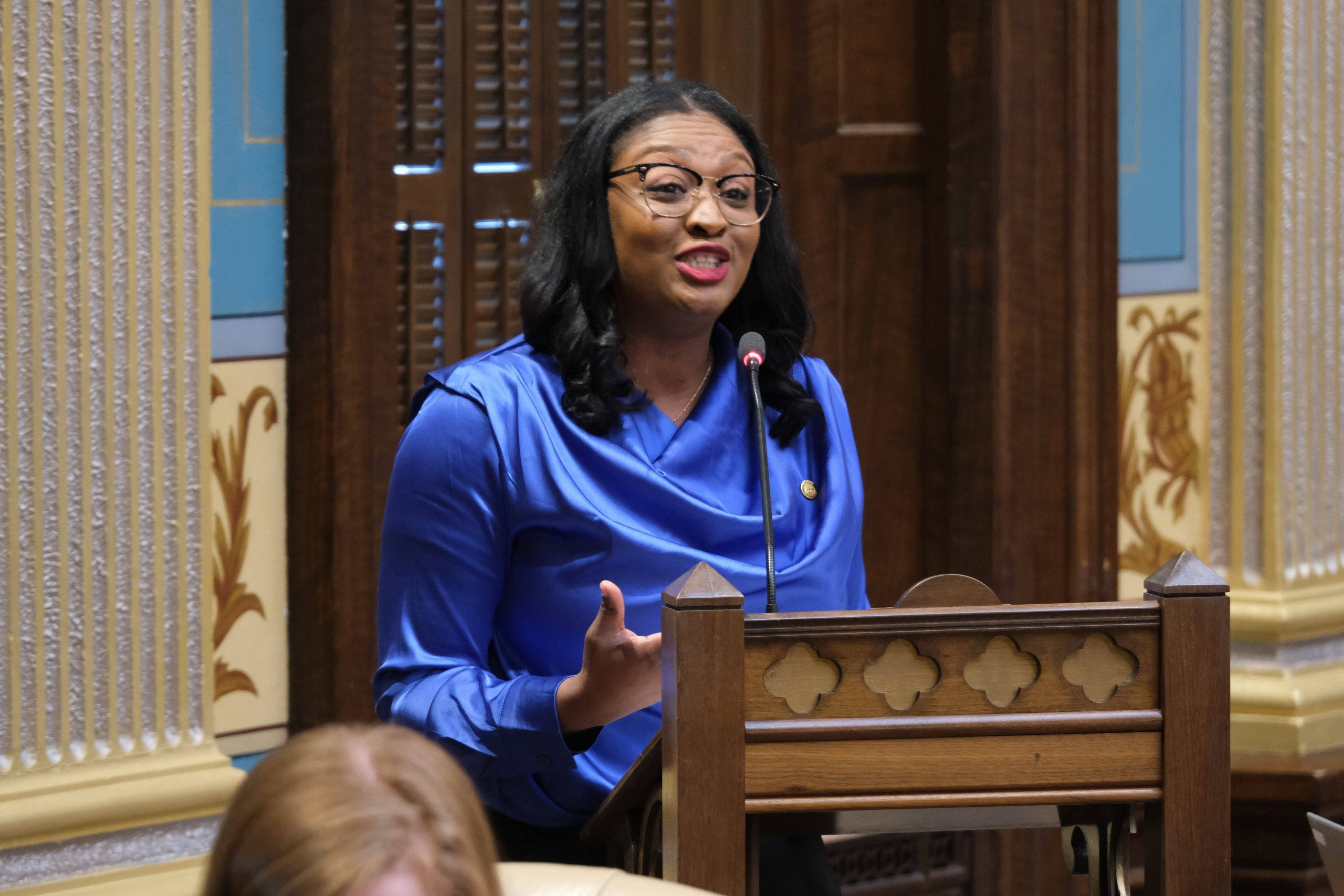
Dear Friend,
I hope this newsletter finds you and your family well. Welcome to our Fiscal Year 2025 ‘Building Up Michigan’ Budget e-newsletter series. In this special edition of my e-newsletter, we will take a closer look at the 2025 state budget we are building to generate investments and create opportunity for all Michiganders.
In the first edition of the budget e-newsletter, we will look at the overall budget the Senate proposed under my leadership as Senate Appropriations Chair. I will also provide a quick overview of the state budget process and update you on our current progress.
As always, if you or someone you know wants to provide feedback about what’s happening in the Capitol or need assistance, please feel free to reach out to my team at any time. You can email us at SenSAnthony@senate.michigan.gov or call (517) 373-6960.
In Service,

Sarah Anthony
State Senator
District 21
Building Up Michigan
Last year’s budget was about transformation. This year’s budget is all about continuation. We are building up Michigan, and while state revenues may fluctuate year to year, our values and priorities will not — our guiding principles in the 2025 budget remain the same: transformational investments; innovative and equitable solutions; fiscal responsibility.

The state budget is a values statement and a financial one, and the 2024 budget has served as a strong foundation that we will continue to build on this year and in the years to come. These intentional investments will enable all Michiganders to reach new heights.
The Senate’s budget proposal is “building up Michigan” by investing millions of dollars to improve every facet of the state’s future, including:
- Building up Michigan’s kids in every way by making significant investments in maternal and infant health and child care;
- Building up Michigan’s students and workers, their skills and their opportunities for a better life through community college for all, the “College Awaits” program, targeted training and workforce supports like Michigan Reconnect, and support for small business owners, farmers and entrepreneurs;
- Building up the places we call home, rejuvenating and reenvisioning state funding for local communities — including funding for ~1,200 communities currently left out of the revenue sharing formula — to strengthen public safety and improve our quality of life;
- Building up Michiganders’ savings and helping lower costs, from expanded preschool and lowered housing costs to efforts to rein in predatory payday lending and high auto insurance rates; and
- Literally building up Michigan, making significant investments to build more housing and fix our roads, bridges, and water infrastructure.
As we continue laying a blueprint for building a better future in Michigan, my Democratic colleagues and I will continue to uplift your voice and ensure we pass a budget that works for you.
What We’re Building Towards
Safer Communities

The Michigan State Police Budget includes funding to equip the agency with the resources necessary to build a modern police force, keeping residents and communities safe across the state.
Continued Investment in our Students
Colleges and universities are crucial in guiding Michigan’s young minds into successful and well-paying careers in health care, technology, trades, and more. That’s why in our 2025 state budget for higher education, we included an expansion of the Michigan Achievement Scholarship program, known as the “Community College Guarantee.”
This investment would help cover tuition for Michigan high school graduates pursuing an associate degree or skilled certificate at a community college in the state. Additionally, this would also open more pathways for high school graduates across the state to attend community college, preparing a brighter future ahead for the state of Michigan and its workers.
Supporting our Veterans

The Department of Military and Veterans Affairs budget includes a number of significant investments in services and programs that cater to the needs of Michigan’s military community.
Restoring Revenue Sharing
In 1998, Michigan introduced a fairer way to share revenue with local communities using a 3-factor formula, phased in over ten years. However, this plan was abruptly replaced after just four years with a “uniform reduction” method, which excluded nearly 1,200 communities from receiving funds. As a result, these underfunded areas had to cut essential services like sidewalk repairs, water projects, park improvements, and library programs.
Our goal with our 2025 state budget proposal is to bring back the 3-factor formula from 1998 through Senate Bill 760. This change would allow all Cities, Villages, and Townships (CVTs) to receive revenue sharing payments, including the roughly 1,200 communities previously excluded. The bill also proposes a 20.5% increase in revenue sharing for CVTs and counties, ensuring no community loses funding.
This approach promises to benefit all of Michigan, from rural to urban areas, by ensuring essential services like police, fire departments, parks, and utilities are well-funded and reliable.
And More!
As we continue working through the state budget, I will provide these email updates to offer a deeper explanation of each stage of the budget process. Each edition of our ‘Building Up Michigan’ Budget e-newsletter series will focus on one specific department budget and give an in-depth look at what’s included.

We passed the Senate version of the state budget earlier this month — you can see my full remarks here — and I am extremely proud to say this budget truly benefits the people of Michigan. However, our work is just beginning. Now that the Senate has approved our version of the state budget, we must negotiate with the House of Representatives to merge both versions into a final draft that the governor will sign.
My team and I will continue fighting to finalize a budget that builds on the strong foundation we laid in the last fiscal year, reaffirms our guiding principles of equity, innovation, intentionality and fiscal responsibility, and adds innovative proposals that address the complex challenges facing the hardworking people of Michigan.
